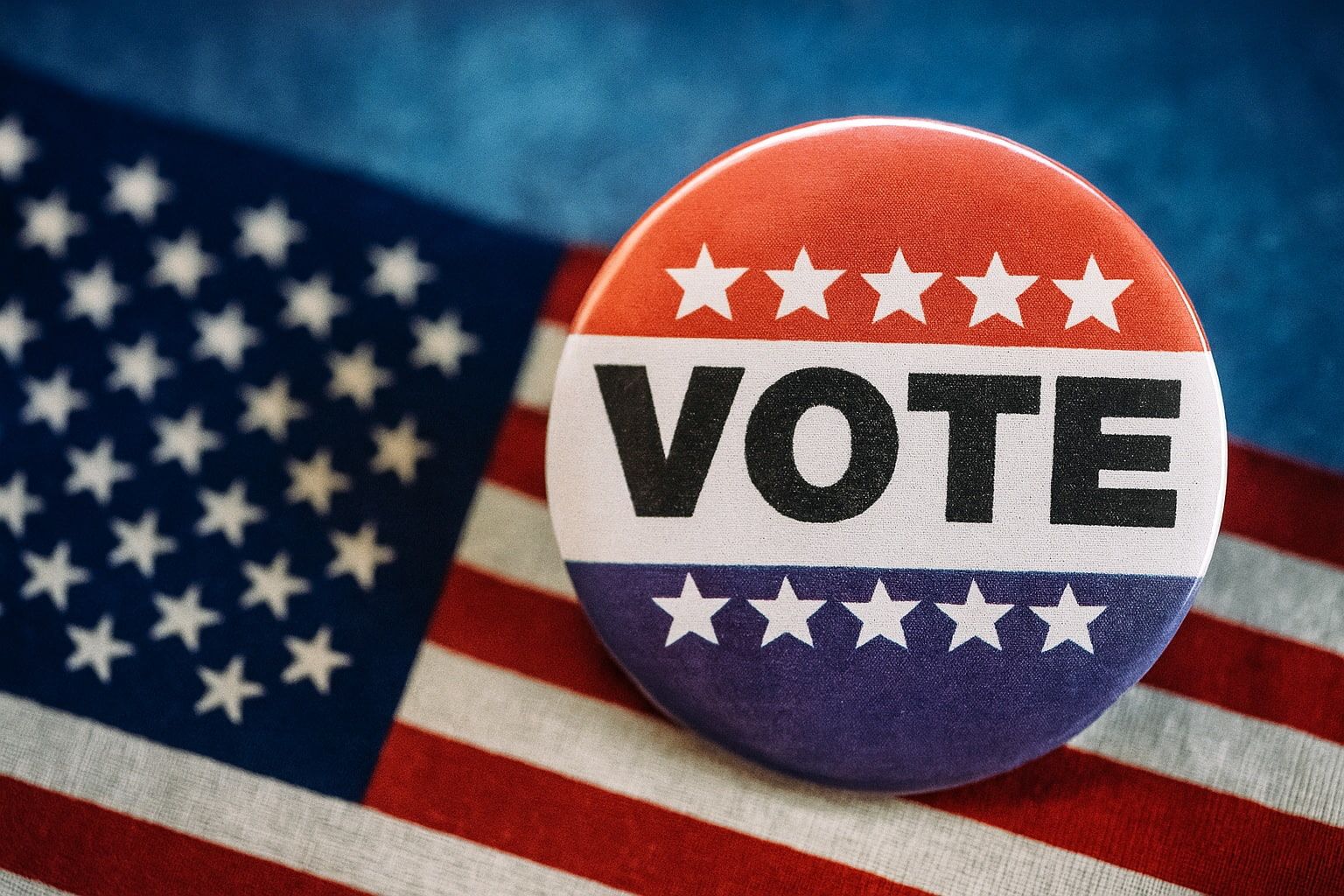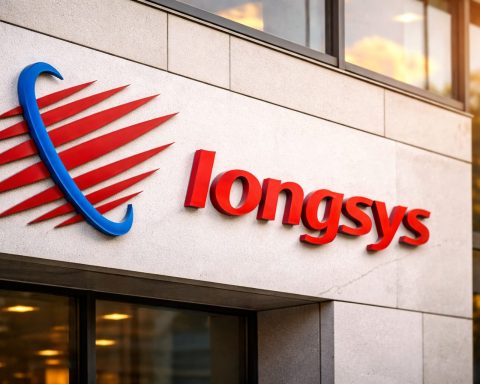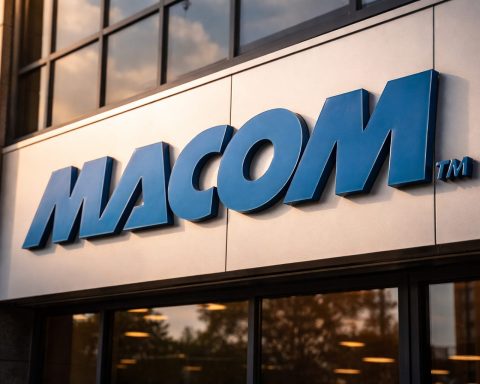- Not a Federal Holiday: Election Day (Tuesday, Nov. 4, 2025) is not a federal holiday, meaning most businesses and services operate on normal scheduleshindustantimes.com1 .
- Banks Operating Normally: Major banks will remain open with regular hours on Election Day. Institutions like Bank of America, PNC, Capital One and Wells Fargo have confirmed they are open as usualnewsweek.com. ATMs, online banking, and stock markets also function normally since no federal bank holiday is in effect.
- Mail and Shipping Uninterrupted:USPS post offices will be open on Election Day and mail will be delivered per usual routeshindustantimes.com. Private carriers UPS and FedEx have confirmed “business as usual,” with all pickup, delivery services and stores running on normal Tuesday scheduleshindustantimes.com. Even Amazon will continue its regular delivery operations (the company does not observe Election Day as a holiday)2 .
- Government Offices & Courts: In most of the country, government offices remain open. However, 14 states observe Election Day as an official state holiday, closing state offices and courtsnewsweek.comnewsweek.com. This includes states like Hawaii, Illinois, Maryland, New York, West Virginia (which also require paid time off to vote) and others including New Jersey, Delaware, Virginia and more that close offices without mandated paid leavenewsweek.com. Federal offices stay open nationwide.
- Schools and Local Services:Most schools stay open on Election Day, except in some areas where schools close to serve as polling places or for student safetynewsweek.com. For example, major public school systems in New York City and Chicago schedule a day off for Election Daynewsweek.com. Some districts, like in El Paso, Texas, are closing schools over safety concerns, since polling sites must remain accessible and unlocked during voting3 .
- Employers Allowing Time to Vote: Many employers encourage voting. Some companies adjust hours or give time off on Election Day even if not required. Outdoor retailer REI is opening stores two hours late, and Patagonia is even closing all stores for the day to ensure employees can votenewsweek.com. These voluntary moves reflect a growing corporate trend to treat Election Day as a day for civic participation.
- Stock Market and Economy: Financial markets remain open on Election Day. The NYSE and NASDAQ will trade normally, and stocks are thriving heading into Election Day 2025. Bank of America’s stock is trading around $53–$54, near an all-time high (it closed at $53.45 on Nov. 3, 2025)angelone.in. UPS shares recently surged ~13% after a strong earnings report and upbeat holiday shipping forecastreuters.com, while FedEx also jumped about 3% in sympathyreuters.com. Analysts predict a robust holiday season will boost shipping volumes, with UPS expecting a “considerable surge” in package volume in Q4reuters.com. Meanwhile, banks are benefiting from a stable economy and recent Federal Reserve interest rate cuts, which have eased earlier concerns4 .
- Ongoing Holiday Debate: The fact that Election Day isn’t a federal holiday remains a point of debate. Voter turnout in the U.S. has historically lagged other democracies – for instance, less than 56% of voting-age Americans cast ballots in 2016businessinsider.com. Advocates (including figures like Sen. Bernie Sanders) argue making Election Day a national holiday (“Democracy Day”) would give more people time to vote and signal a commitment to democracybusinessinsider.com. A bill in Congress, the Election Day Act (H.R. 154), has been introduced to establish Election Day as a federal holidaycongress.gov, but as of November 2025 it has not advanced. In the meantime, over 30 states have laws requiring employers to give some form of time off to votebusinessinsider.com, and a handful of states fully recognize Election Day as a paid holiday5 .
Election Day 2025: Not a Federal Holiday, But Some States Take the Day Off
Election Day in the United States falls on Tuesday, November 4, 2025. Unlike holidays such as Veterans Day or Memorial Day, Election Day is not a federal holiday, so there is no nationwide work stoppagehindustantimes.com. On the federal level, government offices, agencies, and services remain open on their usual schedules. For most Americans, it’s a normal workday with the expectation that voting is done in between work or before/after hours.
However, a number of state and local governments do treat Election Day as a holiday. Fourteen U.S. states have designated general Election Day as an official state public holiday (in some form), meaning state government offices in those states are closed on election daynewsweek.com. This list includes Hawaii, Illinois, Maryland, New York, West Virginia – states which not only close offices but also require employers to give paid time off for votingnewsweek.com. An additional set of states – including Delaware, Indiana, Kentucky, Louisiana, Michigan, Montana, New Jersey, Rhode Island, Virginia – recognize Election Day as a holiday for state offices without a mandate of paid leave for private employersnewsweek.com. In those places, you can expect state DMVs, courts, and other public agencies to be closed on Election Day. Many state and local courts also go dark for the day if their state observes the holiday; for instance, New York’s state courts list Election Day as a holiday, so no hearings are scheduled and court staff get the day off6 .
Beyond those 14 states, no other states give everyone the day off, but most states have laws granting workers time off to vote (typically a few hours excused from work)businessinsider.com. This patchwork approach is aimed at helping people get to the polls even when Election Day isn’t universally a day off. The debate over making Election Day a federal holiday has gained traction in recent years – advocates argue it would remove barriers to voting and boost turnout. Indeed, U.S. voter participation has historically been low compared to other developed nations, with only 55.7% of the voting-age population voting in 2016’s presidential electionbusinessinsider.com. “Election Day should be a national holiday so that everyone has the time and opportunity to vote,” Senator Bernie Sanders has argued, saying that while it’s not a cure-all, it would demonstrate a “national commitment to create a more vibrant democracy”businessinsider.com. In early 2025, a bipartisan group in Congress introduced the Election Day Act (H.R. 154) to establish Election Day as a federal holidaycongress.gov. As of Election Day 2025, that proposal remains introduced but not yet passed into law, meaning November 4, 2025 is still a regular workday for federal purposes.
What’s Open on Election Day?
Most services that Americans rely on day-to-day will be open and running normally on Election Day 2025, precisely because it isn’t a federal holiday. Here’s a breakdown of key sectors and what to expect:
- Banks and Financial Institutions:Banks will be open on Election Day, maintaining standard Tuesday business hours. Banks follow the federal holiday calendar for closures, and since Election Day isn’t on that list, it’s business as usual at branches nationwidenewsweek.com. Major banks including Bank of America, JPMorgan Chase, Wells Fargo, Citibank, PNC, Capital One and others have all confirmed they will operate on normal schedules on Tuesday, Nov. 4newsweek.com. Customers will have full access to teller services, drive-through banking, ATMs, as well as digital banking services. Smaller local banks and credit unions are generally open too, though it’s always wise to check specific branch hours if you plan an in-person visit (some may slightly adjust hours if located inside public buildings that close, but this is uncommon). Notably, stock markets do not close for Election Day either – the New York Stock Exchange and NASDAQ will be open for their regular trading hours. In fact, financial markets tend to treat Election Day like any other trading day. The only days banks and markets uniformly close are federal holidays such as Thanksgiving or Christmas. So if you have banking to do or stocks to trade on Election Day, you won’t be impeded by the calendar.
- Mail and Package Delivery: All major mail carriers are up and running on Election Day. The United States Postal Service (USPS) keeps post offices open and maintains normal mail delivery on Election Dayhindustantimes.com. USPS only shuts down on its official postal holidays (e.g. Presidents’ Day, July 4th, Veterans Day, etc.), and Election Day isn’t one of themnewsweek.com. Post offices will hold their typical hours (often 8 a.m. to 5 p.m. or 9 a.m. to 4:30 p.m., depending on location) and home mail routes will be delivered without interruption. If you’re expecting a letter or package on Nov. 4, it should arrive like any other Tuesdaynewsweek.com. Private delivery services are also fully operational. UPS will run its regular pickup and delivery services on Election Day, according to the company’s schedule – UPS stores and drop-off locations will be open on their normal schedules as wellhindustantimes.com. FedEx has confirmed it will likewise operate normally on Tuesday, with all services (FedEx Express, Ground, Home Delivery, etc.) available and FedEx Office stores open standard hourshindustantimes.com. Both UPS and FedEx have made clear that for them it’s business as usual on Election Day, treating it no differently than any typical weekday. Amazon deliveries will continue as scheduled toonewsweek.com. Amazon does not recognize Election Day as a holiday in its logistics operations, so if you’re waiting on an Amazon Prime package or grocery delivery on Nov. 4, you can expect it to arrive on time. In short, mail will get delivered and packages will move on Election Day – voters dropping off mail-in ballots last-minute can also be assured that postal service and express mail options are available that daynewsweek.com2 .
- Retail and Businesses:Most retail stores, groceries, restaurants, and other private businesses remain open on Election Day unless they choose otherwise. Since it’s not a mandated holiday, you can shop and dine as usual. In fact, many retailers may see November 4 as a normal day – possibly with some Election Day sales promotions or “I Voted” discounts, but no widespread closures. One exception is that a few civic-minded companies are voluntarily giving employees the day off or adjusting hours to encourage voting. For example, outdoor apparel retailer Patagonia is closing all its U.S. stores and offices on Election Day, continuing a tradition the company began to promote voter participationnewsweek.com. Patagonia’s website declares Election Day a company holiday so workers can vote and serve as poll workers. Another example: REI (Recreational Equipment Inc.) is opening its stores two hours later than usual on Election Day to give employees extra time to vote in the morningnewsweek.com. Such initiatives are still relatively rare in the retail sector but have grown in recent years. Nonetheless, the vast majority of businesses – from big-box stores to small shops – will be open normal hours on November 3 and 4. If in doubt, check for any announcements from your employer or favorite store, but generally you can assume they’re open.
- Federal and State Offices:Federal government offices (like post offices, Social Security offices, IRS, etc.) will be open on Election Day, because it’s not a federal holiday. Federal employees do not get the day off by default. (Some may take personal leave to vote, but agencies remain staffed.) State and local government office closures, however, vary by state. As noted, in roughly 14 states Election Day is a holiday, so state offices in those states are closednewsweek.com. For example, in Illinois or New York, state DMV offices, courts, public libraries, etc. will typically be closed on Election Day. In states without the holiday, state offices operate normally. Many states that don’t close offices still have laws allowing state employees a certain number of hours off to go vote. So if you need to do business at a city hall or county office on Election Day, it’s wise to check your state/local government’s schedule: if you’re in a state like New Jersey or Virginia (which treat it as a holiday) those offices won’t be opennewsweek.com, whereas in a state like California or Texas (no holiday) offices will be open. Courthouses follow a similar pattern – federal courts are open; state courts close in holiday-observing states. The Southern District of New York, for example, lists Election Day as a holiday so its offices closenewsweek.com. Emergency services (police, fire, hospitals) of course remain on duty everywhere.
- Schools: There isn’t a single rule for schools on Election Day – it depends on the district. Many public schools do stay open on Election Day if they are not being used as polling locations. However, a significant number of school districts close schools on Election Day for various reasons. One major reason is that schools often serve as polling places, and having voters coming in and out of school buildings can pose safety and logistical challenges during school hours. In recent years, concerns about security have grown; for instance, in El Paso, Texas, at least three school districts decided to cancel classes on Election Day due to worries about keeping students safe while school doors must remain unlocked for votersnewsweek.com. Even absent specific threats, some school officials prefer to avoid mixing large public crowds with students on campus. Additionally, a day off allows teachers and staff to participate in voting or poll work. Large cities like New York City and Chicago routinely close public schools on Election Day (often using the day for teacher in-service training or conferences)newsweek.com. Other districts might hold classes but with heightened security or reserve an area separate for voting. If you’re a parent, you likely have been notified by your local school board whether Nov. 4 is a student holiday or not. Private schools make their own decisions, but many align with public school schedules if their building is a polling site. In summary, check locally – in some communities November 4 will be a day off for students, while in others it’s a normal school day.
The Push for Time Off to Vote – and Why It Matters
The fact that America’s Election Day occurs on a Tuesday (a workday for most) has long been cited as a factor in lower voter turnout. Critics argue that juggling work and voting can deter participation. A Census survey of non-voters has repeatedly found the number one reason for not voting is “being too busy or having a work schedule conflict.”businessinsider.com Because of this, almost every state has enacted laws to facilitate voting while working – typically by requiring employers to provide a window of time (usually 1-3 hours) for employees to go vote, either with pay or without penalty. Currently, at least 30 states plus D.C. mandate that workers be allowed some time off to votebusinessinsider.com. The rules differ by state: some require the time off to be paid (for example, Colorado gives workers up to 2 hours paid to vote), while others just protect the time off without pay. A few states don’t have explicit laws (like Connecticut or Michigan) but many employers in those states still voluntarily accommodate votersnewsweek.com7 .
Despite these measures, turnout advocates say it’s not enough. They point to international comparisons – many peer democracies vote on weekends or have a holiday, and U.S. turnout has historically trailed. Pew Research data shows the U.S. ranks near the bottom of advanced economies in voter turnout, with countries like Belgium and Sweden seeing 80%+ turnout in recent national elections, compared to roughly ~55-60% in the U.S.businessinsider.com. Making Election Day a full holiday (often dubbed “Democracy Day”) is one proposed solution. It could eliminate the need for workers to squeeze voting into their workday at all. In Congress, the idea has bounced around for years. Senator Bernie Sanders and others have introduced bills to make Election Day a federal holiday – Sanders argued that it would “indicate a national commitment to create a more vibrant democracy” by giving everyone the “time and opportunity to vote”businessinsider.com. As noted, a House bill was introduced in 2025 to accomplish thiscongress.gov. There’s also the parallel idea of combining Election Day with Veterans Day (which occurs on November 11) to create a long “Election Weekend” – an idea a past presidential commission suggested to increase voting accessarchive.fairvote.org. So far, none of these federal proposals have become law. Opposition comes from those who argue a holiday might not dramatically increase turnout (some say it could just become a day off work for many, without voting), or that it could disrupt businesses. Instead of a holiday, some experts suggest measures like expanding early voting, mail voting, or making voting by mail easier – efforts that have indeed grown in recent years.
In the meantime, the trend at the state level has been incremental but steady. Illinois and New York only adopted Election Day as a holiday in the past few years, for examplenewsweek.com. More private companies each election cycle are offering paid time to vote or partnering with initiatives like Time to Vote and ElectionDay.org which encourage giving employees flexibility. The cultural expectation is slowly shifting towards prioritizing voting, even if legally it’s still not a day off for most. In 2020 and 2022, large employers such as Starbucks, Walmart, and Uber gave employees some paid time or adjusted schedules for voting. In 2025’s off-year elections, with lower turnout expected, we still see companies like Patagonia (closing retail for the day) setting an example. Experts say these moves both help employees vote and send a message about the importance of civic engagement.
Business as Usual – Economic and Market Impact
From an economic perspective, Election Day 2025 is not expected to disrupt commerce or markets – it’s largely business as usual. Financial markets treat this Tuesday like any other. In fact, leading up to Election Day 2025, the stock market has been performing strongly. Bank stocks in particular have been on a rise; Bank of America (BAC) shares hit an all-time high closing price of $53.45 just before Election Dayangelone.in, reflecting confidence in the banking sector. This surge in bank stock value comes amid favorable economic conditions – for instance, the Federal Reserve recently cut interest rates again, which can stimulate borrowing and economic activityinsurancenewsnet.com. (The Fed’s Chair Jerome Powell did caution that further cuts are “not a foregone conclusion” for Decemberinsurancenewsnet.com, indicating they’re watching inflation and the job market closely.)
For the shipping and logistics sector, the timing of Election Day coincides with the ramp-up to the holiday shopping season. UPS and FedEx have signaled optimism about Q4 volumes. In late October 2025, UPS reported better-than-expected earnings, citing progress in its turnaround plan, and issued an upbeat forecast for the peak holiday seasonreuters.comreuters.com. UPS’s CEO Carol Tomé noted that retail customers are expecting a “considerable surge” in shipments during the holidaysreuters.com. Off the back of that news, UPS’s stock jumped about 13% in a single day, and rival FedEx’s stock climbed ~3% as investors grew bullish on delivery demandreuters.com. By Election Day, UPS shares were trading in the mid-$90s and FedEx around the mid-$250s, both well up from their early-year levels. This sector’s strength indicates that, with or without an election, the economy is humming along into the year’s end. Consumers are shopping, businesses are shipping goods, and neither voters nor shippers appear to be slowing down.
Energy and other industries also run normally on Election Day. There were no notable price shocks or shortages tied to the election. Gas stations, utilities, manufacturers – all operate on regular schedules. If anything, some analysts joke that the biggest economic impact of Election Day might be the spike in coffee and breakfast sales as voters stop for a cup of coffee on the way to early polls, or the boost to local restaurants from campaign parties on election night. In serious terms, off-year elections like 2025’s generally don’t move markets dramatically because no federal offices (Congress or Presidency) are at stake. Investors are more focused on broader issues like interest rates, inflation, and corporate earnings. For example, around early November 2025, markets were more attentive to ongoing negotiations in Congress over budget issues and the latest tech company earnings than to the scattered state and local elections taking place.
That said, local elections can have local business impacts. In some cities, voters may be deciding on referendums about business regulations, minimum wage laws, or local development projects. For instance, a city ballot measure might affect a local industry (like an initiative to limit short-term rentals or to issue bonds for infrastructure – those could tangibly impact local construction or real estate companies). Businesses closely watch those local propositions. However, these influences are localized and don’t register on the national economic scale.
Looking Ahead
Once Election Day 2025 passes, attention will shift to the outcomes of the day’s elections and any policy changes they herald. This particular year is an “off-year” election, meaning no presidential or midterm Congressional races, but there are still important contests: gubernatorial elections in a few states, mayoral elections (notably New York City’s mayoral race), state legislative elections in states like Virginia (if held) or New Jersey, and numerous local offices. Political analysts will certainly interpret the results as potential bellwethers. For example, a surprise upset in a state or city race might be read as a sign of the public mood leading into the 2026 midterms. However, the immediate practical impact on everyday life or the national economy will likely be minimal.
One area to watch post-Election Day is whether there’s renewed momentum in the push to make voting easier. If turnout is low, it could reinvigorate arguments for reforms such as making Election Day a holiday, expanding early voting further, or enacting new voting rights legislation. On the other hand, if turnout is robust even without a holiday (thanks to early voting or mail-in options), some might argue the current system is sufficient.
From a business continuity standpoint, companies and government agencies will evaluate how the day went. If significant numbers of employees took time off to vote, some employers might formalize policies for future elections. States might look at each other’s practices; for instance, if a state like Illinois (which closed offices) sees high turnout, other states might consider copying that approach. At the federal level, any changes would require legislation – something to keep an eye on as the 2026 Congress convenes.
For now, the key takeaway from Election Day 2025 is that American daily life proceeds mostly uninterrupted even as millions head to the polls. Banks are open, mail is delivered, businesses hum along. Voters have plenty of opportunities – from early voting to extended polling hours – to make their voices heard without needing a full day off. Still, the conversation continues about whether more should be done to make voting even easier. As one Brookings Institution analysis noted, support has grown for the idea of a holiday, even earning some bipartisan backing in recent yearsbrookings.edu. Whether that idea will become reality by the next major election remains uncertain.
In summary, if you’re planning your day on Tuesday, November 4, 2025: go vote if you haven’t already, and don’t worry – you can deposit a check, ship a package, and grab your mail all in the same day. Everything from banks to post offices to UPS trucks will be up and running normally on Election Dayhindustantimes.comhindustantimes.com. Just be mindful of local nuances (like a school closed or a state office unavailable if you’re in a holiday-state). The wheels of commerce and government keep turning, even as democracy does its work at the ballot box. And by Tuesday night, as results come in, Americans will have exercised their rights without having to sacrifice the routines of daily life – a testament to both the country’s commitment to voting and the challenges of making Election Day more accessible.






